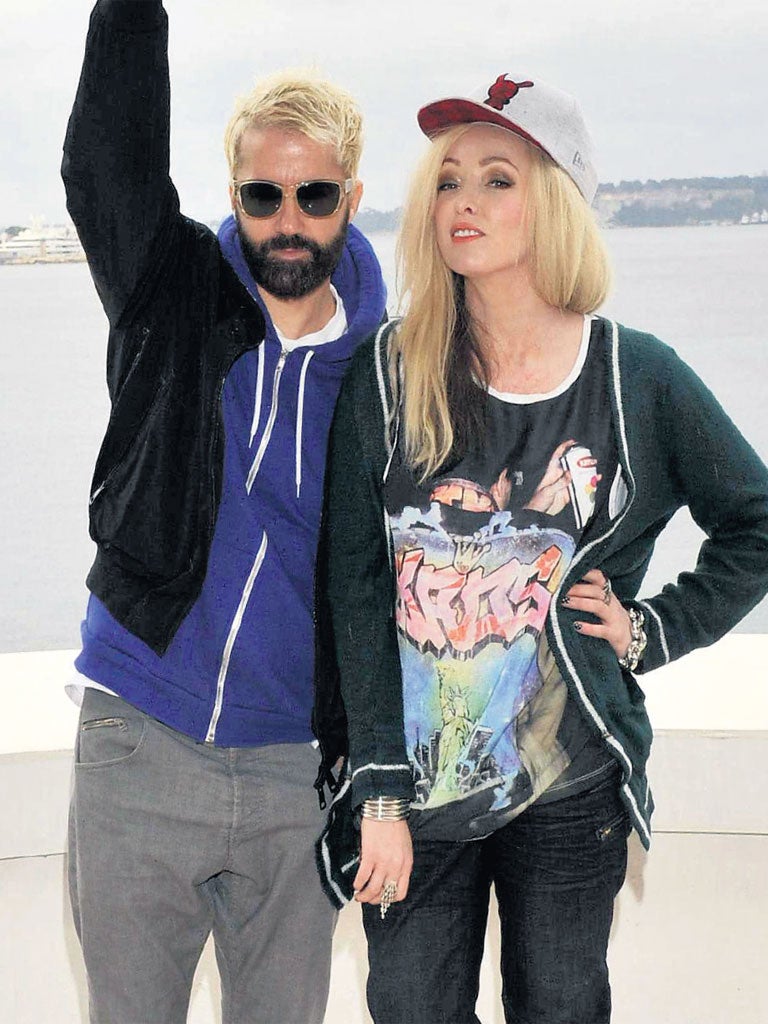'We don't keep songs just for a rainy day'
The Ting Tings threw away an album's worth of material before completing their new release, they tell Andy Gill

Your support helps us to tell the story
From reproductive rights to climate change to Big Tech, The Independent is on the ground when the story is developing. Whether it's investigating the financials of Elon Musk's pro-Trump PAC or producing our latest documentary, 'The A Word', which shines a light on the American women fighting for reproductive rights, we know how important it is to parse out the facts from the messaging.
At such a critical moment in US history, we need reporters on the ground. Your donation allows us to keep sending journalists to speak to both sides of the story.
The Independent is trusted by Americans across the entire political spectrum. And unlike many other quality news outlets, we choose not to lock Americans out of our reporting and analysis with paywalls. We believe quality journalism should be available to everyone, paid for by those who can afford it.
Your support makes all the difference.It has been almost four years since The Ting Tings released their debut album We Started Nothing and five since their infectious single That's Not My Name first exerted its adhesive power on the world's pop consciousness. That's more than enough time for entire music fashions, let alone bands, to slip from Next Big Thing to Last Year's Thing, and the Manchester duo have been so absent from the roundabout of pop trends that it would be extraordinary if they hadn't fallen a little out of favour.
Which all makes the potency of The Ting Tings' return with Sounds From Nowheresville all the more surprising. Like its predecessor, it's a short, sharp burst of spiky art-pop industry, its 10 tracks as lean, whip-smart and diversely engaging as the early albums by their heroes Talking Heads. Only the most jaded, trend-chasing victim of internet burn-out could fail to be persuaded by the manifold charms of an album that confirms, once again, the value of quality over quantity.
"I like the way it's taken nearly four years to produce around a half-hour album," says drummer Jules de Martino with a sly smile. "What's that, seven-and-a-half minutes a year?"
Initially, the delay in producing a follow-up album was due to the band's popularity, as they spent several years chasing a wave of success around the globe. Ironically, it prevented them from actually experiencing their triumph.
"We never felt successful, because we always had to start from scratch in each territory," explains Katie White, charmingly down-to-earth for the universally recognised siren of self-righteous individuality. "Just as That's Not My Name took off in one country, we'd move off to the next, so we never got the experience of being a huge success. We never heard our song on the radio!" But with success came creeping self-doubt, and creative stasis.
"The commercial world changes everything," says de Martino. "A lot of famous painters never really got acclaim until they passed away: they were struggling for most of their careers, and that struggle was the inspiration that kept them painting. You can't replace that."
So when they returned to Manchester more than two years later, bank accounts bulging and ambitions sated, they needed a fresh challenge.
"We needed a reason to create art," explains de Martino. "That's why we moved to Berlin, for the challenge. We had to get our feet back on the ground, start over again, build ourselves back up. We were digging for inspiration, and we got to Berlin and thought, This is great!"
But it wasn't great. Famously, the band ended up scrapping almost an entire album's worth of material recorded in Berlin, and relocating to Spain, where they recorded another album entirely. This provoked rumours of confusion and inertia, but to the duo themselves it was simply the way they had always worked.
"We did that with the first album, too," said White. "If there's a song we're not happy with, we delete it. We don't keep it for a rainy day."
"We'll write five songs, record them as demos, get them together, and in the process of that we come to like maybe a couple of them, and the others we delete," added De Martino. "Then we write four more, scrap three of them, and eventually we get to 10, and that's the album." The Berlin experience, however, was a chastening lesson in following their instincts and not being distracted by outside voices.
"One reason we scrapped them was that we felt we'd lost our opinion of our record," says White. "The record company has representatives in all these different countries, and they all wanted to visit us in Berlin. We'd be halfway through a song and they'd be going, 'that's amazing, it's gonna be huge!'. Then six weeks later we'd listen to it, wondering, do we really like this?We felt fake, like we'd lost the mechanics of what made our band tick. Deleting those tracks made us feel like artists again."
Sounds From Nowheresville is out now
Join our commenting forum
Join thought-provoking conversations, follow other Independent readers and see their replies
Comments